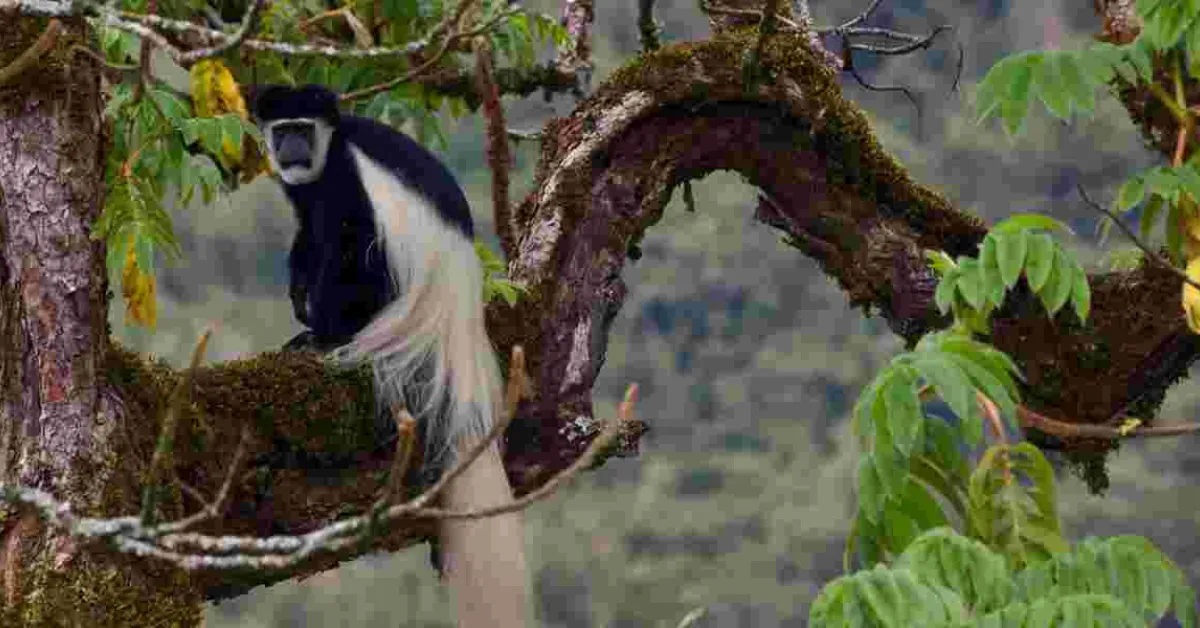Luhya's Primate Delicacy at Odds with Mpox Fears

In the verdant forests of Kakamega and Vihiga counties in western Kenya, a complex relationship between local communities and monkeys has developed over generations.
The Isukha, Idakho, and Tiriki sub-tribes of the Luhya community have long regarded monkeys not merely as wildlife, but as a cherished culinary tradition. This practice, deeply rooted in their cultural heritage, has come under scrutiny in recent times due to health concerns, particularly the outbreak of Monkeypox (Mpox). The Kakamega tropical forest, home to diverse monkey species, has traditionally provided ample hunting opportunities for residents. The Isukha and Idakho tribes, inhabiting areas such as Shinyalu, Ikolomani, and Malava, have historically favoured certain monkey species for consumption, specifically the brown and white or black and white colobus monkeys.
BoniFace Kateka, a long-time resident, emphasizes the cultural significance of this practice. He recounts that monkey hunting has been a part of their way of life for generations, passed down from grandfathers to fathers and sons. This tradition is not merely about sustenance as many in the community attribute medicinal properties to monkey meat, believing it contributes to longevity and improved health. They perceive that monkeys, which feed on local crops and medicinal plants, can boost human immune systems. However, the recent emergence of Mpox has cast a shadow over this tradition.
Government health officials have increased surveillance and advised against the consumption of bushmeat due to potential health risks. This has created a divide within the community with some steadfastly adhering to tradition while others advocating for a temporary suspension of the practice until the health crisis subsides. Peter Liyayi represents this latter viewpoint, recognizing the need to prioritize public health over cultural practices in times of potential epidemic. The cultural significance of monkey meat consumption is further complicated by gender dynamics within the Luhya community.
Cultural norms dictate that certain individuals, particularly pregnant women and young females, should abstain from consuming monkey meat. Adding to the complexity of human-monkey interactions, women in specific areas have reported unusual behavior from local monkeys. In villages such as Shitirira in Kakamega County and Nasewa in Matayos constituency, residents claim that monkeys exhibit boldness towards women, especially those dressed in skirts. These encounters, coupled with crop destruction, have intensified the challenges of wildlife management and conservation in the region.














Comments
This tale is a good reason…
Permalink
This tale is a good reason to take my family there first thing we land home.Seven hours to taste and carry Nyama ya Chimpanzee is not bad at all.
Which part did you miss? Is…
Permalink
In reply to This tale is a good reason… by Menye (not verified)
Which part did you miss?
Is a monkey a chimpanzee?
Same family.Wakalimbizwa…
Permalink
In reply to Which part did you miss? Is… by Abato (not verified)
Same family.Wakalimbizwa unionyeshe vile munatayalisha mulo ya Nyani/sokwe.
People have eaten other…
Permalink
People have eaten other people before.So this should not be a shock to anyone...
I tell you human being have come along way and we still have along way to go.That said, some cultures,and traditions would still have you shake your head in wonderment.Take for ,example that tribe in south america who believe that"mounting a donkey" would give a man "driller' that would rival any donkey.
I highly doubt if that works,so Mwakilishians who have been accused of having small balls by that @ TOTO girl,please confirm before heading there.
Add new comment